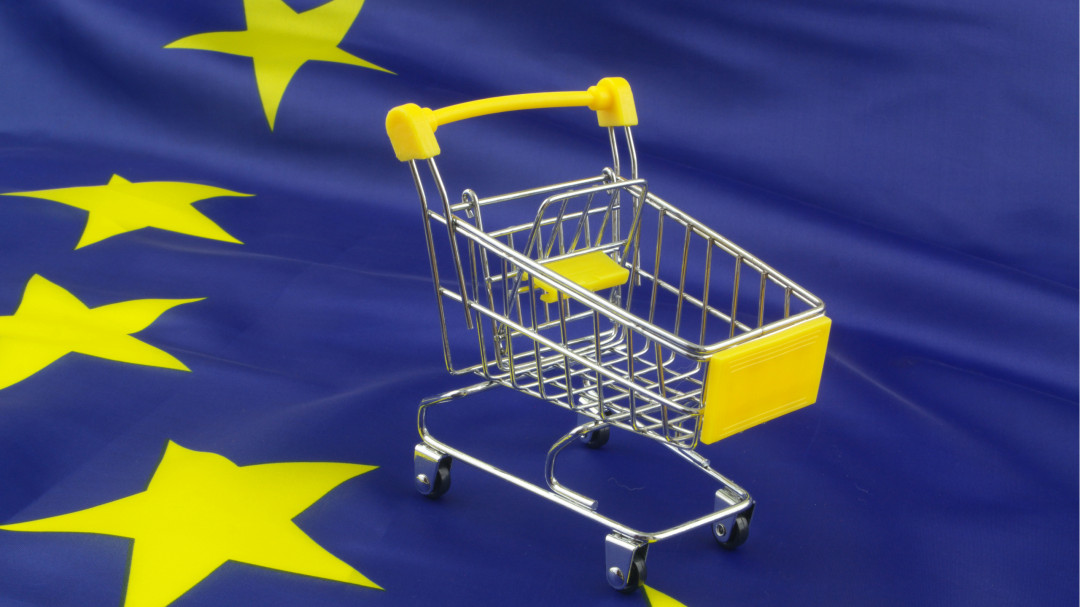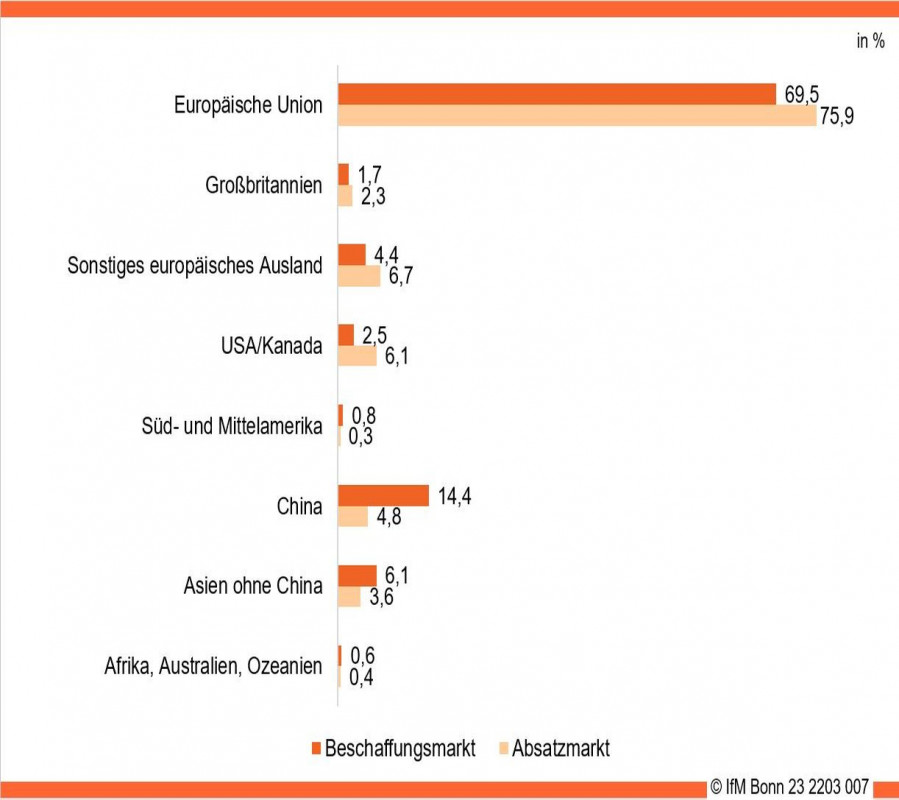
Of all foreign markets, the European single market is the most relevant for SMEs as both a procurement and sales market, followed by the markets in other European countries and China. This was revealed in 2023 by an IfM survey of over 1,800 managers in industrial SMEs.
Companies benefit from both the size of the single market and the largely harmonised regulations. On the one hand, this reduces the transaction costs of trade relations in the EU. On the other hand, companies benefit from cost and productivity advantages due to fixed cost degression effects if they can produce larger quantities and sell them in the EU. Both the reduction in transaction costs and the productivity advantages thus increase the competitiveness of companies within and outside the European Union.
"In addition to all these advantages, the EU internal market offers comprehensive legal certainty and reliable framework conditions, which is of great value to SMEs, especially in view of the growing global risks. It is therefore of central importance for the vast majority of German industrial companies, both for the procurement of primary and intermediate products and for the sale of their own products," explains Hans-Jürgen Wolter, head of the study.
In addition, the harmonised framework conditions of the EU internal market help to connect the diverse entrepreneurial (idea) potentials in the EU member states. This promotes the innovative capacity of companies, as they can jointly develop better, more innovative products and services.
"Fundamental EU scepticism should therefore be questioned just as emphatically as calls for a 'Dexit'". Brexit is a cautionary tale: According to our survey, since the UK left both the customs union and the EU single market, the exchange of goods with the UK has played a much smaller role due to the newly created non-tariff and tariff barriers to trade," reports Hans-Jürgen Wolter.
With regard to the upcoming EU legislative period, Hans-Jürgen Wolter hopes that economic policy for small and medium-sized enterprises (SMEs) will be less fragmented and that a regulatory European SME policy will be initiated instead: "A balance should be struck between the advantages of centralisation and decentralisation. A large part of the law applicable in the EU member states is now based directly or indirectly on EU law. It is therefore all the more important that entrepreneurs consider the legislation to be proportionate, sensible and implementable. Otherwise, there is a risk that they will autonomously reduce bureaucracy, which undermines the rule of law and acceptance of the EU."
The study "Development trends in global value chains from the perspective of SMEs" is available on the IfM Bonn website.


